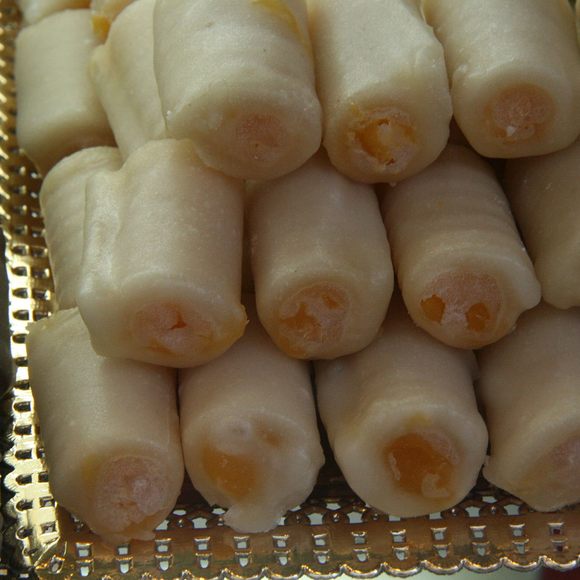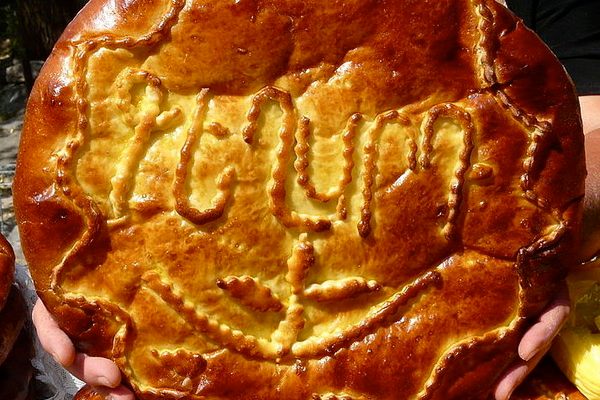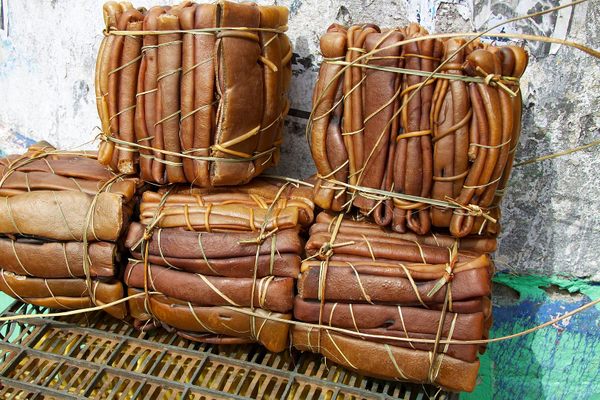On November 1, All Saints’ Day, Catholic families around the world gather to visit the grave sites of loved ones, leaving ornate displays of flowers and gifts beside their tombstones. In Spain, they also eat huesos de santo, otherwise known as “holy bones” or “saints’ bones.”
Pastry chefs create this sweet, skeletal replica using a thin sheet of white marzipan (a sugary, ground almond paste) formed into a tube, or in this case, the shape of a hollow bone. In keeping with anatomical accuracy, they pipe in gooey “bone marrow” from a pastry bag—a paste of egg yolk and sugar, akin to the contents of traditional Spanish yemas.
Huesos de santo serve as a pleasant reminder of the saintly relic collections preserved in churches, some of which include actual human remains. Consider these morbid confections your only avenue for consuming bones in a Spanish cemetery without doing anything disrespectful, sacrilegious, or illegal.
Where to Try It
-
Convento de Santa Catalina de Zafra
Carrera del Darro, 39 , Granada, 18001, SpainThis convent, known for huesos de santo, keeps four traditional rotating pastries on offer.
Written By
 rachelrummel
rachelrummel















